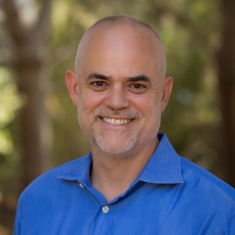The Dean's Podium - Faculty of Natural Sciences
Guest Lecturer - Prof. Floyd Romesberg

Abstract
A Semi-synthetic organism that stores and retrieves increased genetic information
Since the last common ancestor of all life on earth, the biological diversity has been encoded in a four letter, two base pair genetic alphabet. Expansion of the genetic alphabet to include a fifth and sixth letter than for a third, unnatural base pair not only has immediate utility for a number of applications, such as site-specific oligonucleotide labeling, but also serves as the foundation for an organism with an expanded genetic code. Toward this goal, we have examined a large number of different unnatural nucleotides bearing mainly hydrophobic nucleobase analogs that pair based on packing and hydrophobic interactions rather than H-bonding. Optimization based on extensive structure-activity relationship studies and two screens resulted in the identification of a class of unnatural base pairs that are well recognized by DNA and RNA polymerases. More recently, we have engineered E. coli to import the requisite unnatural triphosphates and shown that DNA containing the unnatural base pair is efficiently replicated, transcribed, and translated within the cell, resulting in the first semi-synthetic organism that stores and retreives increased information.
Floyd E. Romesberg received a B.S. and M.S in chemistry from The Ohio State University, and a Ph.D. in physical organic chemistry from Cornell University. He was an NIH postdoctoral fellow at UC Berkeley with Peter Schultz, and in 1998 joined the faculty at The Scripps Research Institute, where he is currently Professor of Chemistry. Romesberg’s research laboratory applies organic chemistry, microbiology, non-linear optical spectroscopy, and genetics, to study different aspects of evolution. Of particular significance is his work to expand the genetic alphabet and code through the development of a third DNA base pair that relies on hydrophobicity as opposed to hydrogen bonding for selective pairing. Romesberg has been recognized by several awards including the Camille Dreyfus Teacher Scholar Award, the NSF CAREER Award, the Discover Magazine Technology Innovation Award, the ACS Nobel Laureate Signature Award, and the Royal Society of Chemistry’s 2018 Bioorganic Chemistry Award. His research has been funded by NIH, NSF, Office of Naval Research, and Defense Advanced Research Projects Agency. Romesberg is also a scientific founder of several biotech companies, including Achaogen, Inc., RQx Inc., and Synthorx, Inc.